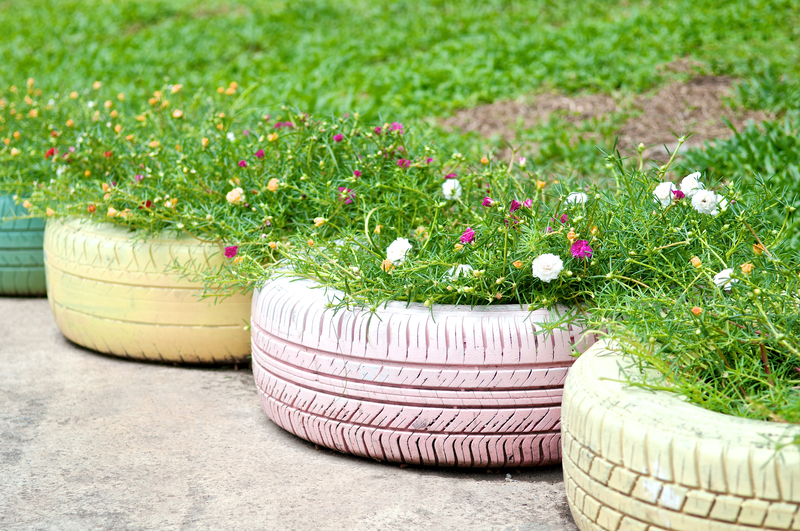How to Responsibly Get Rid of Old Cookware
Cookware is an everyday essential in every household. Over time, pots, pans, skillets, and bakeware become scratched, warped, or simply outlive their usefulness. As kitchenware reaches the end of its lifecycle, you might ask yourself: What is the best way to dispose of old cookware? Instead of tossing them into the trash, there are environmentally-friendly and responsible ways to get rid of old cookware. In this guide, we'll cover effective, sustainable, and even creative methods of saying goodbye to your old kitchen gear.
Why Responsible Disposal of Cookware Matters
Throwing out pots and pans in the regular garbage might seem convenient, but it's far from ideal. Most cookware contains materials--like metals, plastics, and coatings--that can take decades or centuries to break down in landfills. Some nonstick pans even release harmful chemicals if improperly discarded.
- Reduces landfill waste: Cookware is bulky and not biodegradable.
- Prevents environmental pollution: Nonstick coatings and metals can contaminate soil and groundwater.
- Encourages resource saving: Recycling metals saves energy and raw materials.
- Benefits others: Usable cookware can be donated to those in need.
Learning how to responsibly get rid of old cookware can help you protect the planet and give your kitchen items a second life.

Assessing the Condition of Your Cookware
Before deciding how to dispose of old pots and pans, evaluate their condition:
- Is the cookware still functional? - If it heats evenly and is structurally sound, it could be donated.
- Is the nonstick surface flaking? - Pans with peeling Teflon or other coatings should not be donated, but can often be recycled.
- Is the pan warped or rusted? - Severely damaged cookware is best suited for recycling or upcycling.
- Are handles or lids missing? - Complete items are more desirable for donation.
Pro Tip:
Perform a simple usability test--boil water or fry an egg. If sticking, uneven heating, or safety concerns arise, it's time to let go.
Donation: Giving Your Cookware a Second Life
If your old cookware is still in usable condition, donating is an excellent way to let it serve others.
Where to Donate Old Cookware
- Local charities: Organizations like the Salvation Army or Goodwill accept lightly used kitchenware.
- Homeless shelters and food banks: Many need pots, pans, and bakeware for meal preparation or distribution to families.
- Community kitchens: Soup kitchens and community centers often appreciate donations of cookware.
- Thrift stores: Drop off items in good shape--they turn sales into charitable programs.
- College students: Post in online groups or community boards for students or young adults setting up apartments.
Always call ahead to ensure the organization accepts cookware, and thoroughly clean your items before donating.
Recycling Old Cookware: Sustainable Metal Recovery
Most cookware is made of metals like aluminum, stainless steel, copper, or cast iron. These can be valuable resources if properly recycled.
How to Recycle Old Pots and Pans
- Identify the material: Look for symbols or labels indicating metal type (magnetic = steel or iron, non-magnetic = aluminum or copper).
- Remove synthetic parts: Unscrew or cut off plastic handles, rubber grips, or glass lids, as these complicate metal recycling.
- Contact your local scrap yard: Many accept metal cookware for recycling and may even pay you for bulk quantities.
- Municipal recycling center: Some curbside and drop-off recycling programs accept metal cookware--check online for local rules.
- Specialty recycling events: Communities sometimes organize household goods or e-waste recycling days open to cookware.
Tip:
Nonstick or coated pans are best recycled at scrap yards, as municipal programs may reject them due to coatings.
Upcycling: Creative Ways to Reuse Old Cookware
If you're crafty or love DIY projects, upcycling cookware is a fun, eco-friendly choice. Here are creative ways to repurpose old pots and pans:
- Garden planters: Drill drainage holes and fill with soil for an eye-catching herb or flower pot.
- Wall decor: Hang decorative pans or lids for a rustic kitchen wall gallery.
- Bird feeders: Transform a skillet or saucepan into a unique outdoor feeding station.
- Serving trays: Old baking sheets or pans can become stylish serving trays or catchalls.
- Clocks: Mount a clock kit in the center of a pan or pot lid for quirky timepieces.
Let your imagination sparkle--the possibilities for upcycled cookware are endless!
Pitfalls to Avoid When Disposing of Old Cookware
- Do not throw cookware in the regular trash: Metal items can cause problems at landfills and waste-to-energy plants.
- Avoid donating damaged or unsafe cookware: If it has flaking coatings, severe rust, or structural damage, recycling is more responsible.
- Never burn nonstick pans: This releases toxic fumes and is dangerous to health and the environment.
Disposal Methods for Different Types of Cookware
How to Dispose of Nonstick Pans
Nonstick pans with damaged coatings are not fit for donation. Their coatings, often made from PTFE (Teflon), can be problematic in landfills. Here's how to responsibly dispose of nonstick cookware:
- Scrap yard recycling: Metal recyclers can process pans after removing coatings.
- Specialty recycling programs: Companies like TerraCycle periodically accept hard-to-recycle kitchen wares.
- Mail-in recycling: Some manufacturers run recycling take-back programs--check your pan's brand website.
Never burn or break up nonstick pans, as this can expose toxic chemicals.
How to Get Rid of Old Stainless Steel Cookware
Stainless steel is highly valuable for recycling. Most scrap yards and municipal centers accept old stainless steel cookware--just remove any plastic or silicone parts. These can produce new products like appliances, construction materials, and even new cookware.
Disposing of Cast Iron Pans
Cast iron pans are prized for durability. Even rusted or blackened ones can be restored or recycled. If donating or selling, note that antique cast iron is collectible! When recycling, remove food residue and consult your local scrap yard.
Getting Rid of Aluminum or Copper Pots
Aluminum and copper cookware are recyclable but fetch a higher value at scrap yards. Ensure they're clean, free of non-metal parts, and sorted to maximize recycling returns.
Bakeware and Ceramics
Most glass, ceramic, or Pyrex bakeware cannot be recycled with regular glass due to different melting points. Instead:
- Donate if in good condition
- Upcycle as planters or serving dishes
- Contact specialty recycling programs for possible acceptance
Commonly Asked Questions on Responsible Cookware Disposal
Can I put old pans in my recycling bin?
Not always. While some municipal programs accept metal items, most curbside recycling bins are for cans and small items only. Check with your local waste management provider or go directly to a scrap metal yard.
Is nonstick cookware hazardous waste?
Normally, no, but nonstick pans should not be incinerated or landfilled if possible. Flaking or damaged Teflon releases harmful substances under certain conditions. Always recycle or use a professional disposal option.
Will scrap yards accept cookware with plastic handles?
It varies--most prefer cookware with handles removed. Some may take it as-is and separate materials themselves. It's best to disassemble if possible.
How can I repurpose damaged pans creatively?
Turn damaged items into:
- Planters or garden art
- Tool holders or decorative storage
- Outdoor fire pits (for larger pots)

Responsible Cookware Disposal Checklist
- Assess cookware condition: Can it be safely donated?
- Remove all non-metal parts: Handles, plastic, and rubber should be separated for recycling.
- Consider creative reuse: Upcycle where possible into useful or decorative items.
- Contact local recyclers or donation centers: Ask what they accept.
- Package items safely: Especially for donations or mail-in recycling.
Final Thoughts: The Best Way to Get Rid of Old Kitchenware
Responsible disposal of old cookware is a simple way to make a positive environmental impact and help others. Whether you choose to donate, recycle, or reinvent your pots and pans, you're preventing needless waste and supporting sustainable living.
Remember:
- Donate if it's usable.
- Recycle metal cookware.
- Upcycle creatively.
- Never landfill or burn nonstick pans.
By following this guide on how to responsibly get rid of old cookware, you help protect the planet, support your community, and open up new opportunities for creative projects. Next time you upgrade your kitchen, you'll be prepared to make the most responsible choice for your old kitchenware.